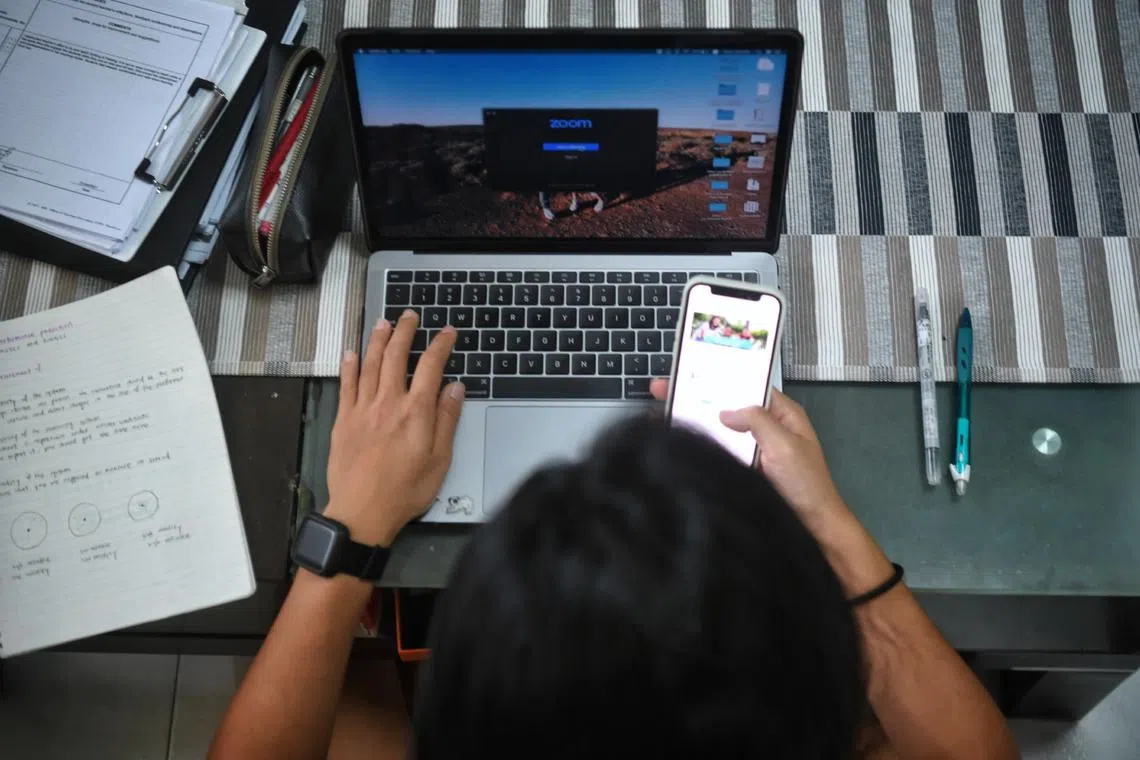For subscribers
As technology evolves, so must support for adult skills
A survey shows that skill levels among Singapore’s adults are uneven, and some skills start deteriorating early. Training is key.
Sign up now: Get ST's newsletters delivered to your inbox

The abrupt shift to online platforms and transactions was fairly smooth for Singapore, but also revealed striking competency gaps.
PHOTO: ST FILE
If there was ever a time that entire countries had to swiftly upskill their citizens, especially in the digital realm, it was during the Covid-19 pandemic that is now a hazy memory. And yet that period offers us some invaluable lessons about skills preparedness. In Singapore, we had to learn how to verify our identity using Singpass and TraceTogether, engage in online banking and online shopping, take classes via Zoom and attend work meetings and even social gatherings over Teams. This abrupt shift to online platforms and transactions was fairly smooth for Singapore, but also revealed striking competency gaps.
In interviews of less privileged households that I conducted with the support of fellow academics and social workers in Singapore, we discovered how digital disadvantage compounds. Wealthier families were well positioned to quickly raise their digital literacy as they already owned the latest devices and had healthy exposure to online services. Their prior experience with technology enabled them to adapt nimbly to new innovations. Many of them were employed in roles reliant on information and communication technology (ICT), which vested them with additional training and organisational support to address any digital skills gaps. As a result, advancing their technological proficiency was relatively seamless, even during that tumultuous period.


